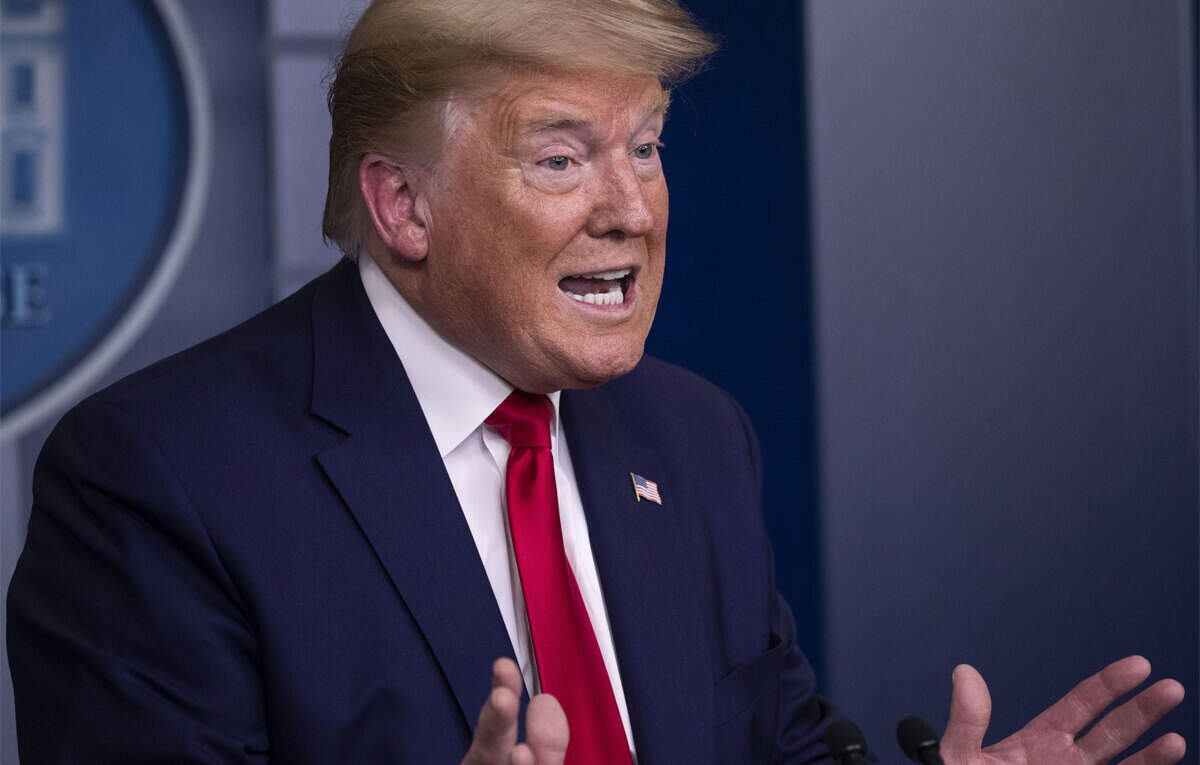How Trump's Desire For Cheap Oil Affects The Energy Industry He Claims To Support

Table of Contents
The Paradox of Cheap Oil and Domestic Energy Production
A central contradiction emerged during the Trump administration: strong rhetoric supporting domestic energy production (particularly oil and gas) coexisted with a clear preference for low oil prices. This presented a significant challenge. Low oil prices, while beneficial to consumers at the gas pump, directly harm the profitability of oil and gas producers. This directly impacts investment and job creation within the sector.
-
Impact on Shale Oil Producers: The shale oil industry, characterized by high extraction costs, is particularly vulnerable to price fluctuations. Lower prices reduce profit margins, leading to decreased investment in exploration and production. This translates into:
- Reduced drilling activity across shale basins.
- Bankruptcies among smaller, less capitalized producers.
- Layoffs and reduced employment opportunities in the oil and gas industry. This impacts not only the extraction companies but also related support services.
-
Effects on Refining and Distribution: While lower crude oil prices benefit consumers, they can simultaneously squeeze profit margins for refineries and distributors. The downstream sector faces pressure to maintain profitability in a low-price environment, resulting in:
- Pressure on profit margins, forcing difficult choices regarding investment and operational costs.
- Reduced investment in refinery upgrades and modernization, potentially hindering long-term efficiency and competitiveness.
- Potential job losses in downstream sectors as companies grapple with reduced profitability.
International Implications of Trump's Oil Policy
Trump's approach to OPEC and international oil markets also played a significant role. His emphasis on cheap oil inadvertently empowered OPEC nations, allowing them to exert greater influence over global oil prices.
-
Impact on US Geopolitical Influence: The pursuit of low oil prices potentially diminished US leverage in global energy politics. By focusing on lower prices rather than strategic partnerships, the US may have:
- Increased its reliance on foreign oil, reducing energy security and increasing vulnerability to geopolitical instability in oil-producing regions.
- Lost some influence over OPEC, hindering the ability to negotiate favorable conditions for American energy interests.
- Created uncertainty regarding the long-term stability of energy supplies.
-
Consequences for Energy Diversification: The focus on cheap oil arguably hindered investments in renewable energy sources and other alternative fuels. Lower oil prices reduced the economic incentives for transitioning to cleaner energy sources, leading to:
- Reduced incentives for renewable energy development, slowing progress towards a more sustainable energy future.
- A slower transition to cleaner energy sources, potentially exacerbating environmental concerns.
- Missed opportunities for technological advancement and innovation in renewable energy and alternative fuels.
The Environmental Impact of Prioritizing Cheap Oil
Prioritizing cheap oil inevitably leads to increased fossil fuel consumption, with significant environmental consequences.
- Implications for Climate Change: Increased consumption of fossil fuels directly contributes to higher greenhouse gas emissions, exacerbating climate change and hindering progress toward climate goals. This includes:
- Increased carbon emissions from transportation, power generation, and industrial processes.
- A greater contribution to climate change, impacting global ecosystems and human societies.
- The potential for stricter environmental regulations in the future, necessitating costly adaptations for the energy industry.
The Long-Term Economic Effects of Trump's Oil Strategy
The long-term economic consequences of prioritizing cheap oil over a more sustainable energy policy are multifaceted and potentially detrimental.
-
Potential for Future Energy Price Volatility: Focusing solely on low prices can create greater price instability in the long run. Increased dependence on fluctuating global markets can result in:
- Increased dependence on fluctuating global markets, making the US economy vulnerable to supply shocks and price spikes.
- Vulnerability to supply shocks from geopolitical instability or unforeseen events in oil-producing regions.
- Long-term economic uncertainty as energy prices become increasingly unpredictable.
-
Impact on Energy Infrastructure Investment: A focus on low prices can discourage investment in crucial energy infrastructure projects. This can lead to:
- A lack of investment in pipelines, renewable energy infrastructure, and other essential energy projects.
- Reduced energy efficiency due to a lack of upgrades and modernization.
- Long-term costs associated with upgrading outdated infrastructure in the future.
Conclusion: Understanding the Lasting Effects of Cheap Oil Policies on the US Energy Industry
Former President Trump's emphasis on cheap oil created a complex and potentially damaging situation for the American energy industry. While consumers temporarily benefited from lower gas prices, the strategy created challenges for domestic producers, potentially hindered long-term investments in renewable energy, and impacted international relations and environmental sustainability. Understanding the multifaceted consequences of this policy is crucial to developing a more sustainable and resilient energy future for the United States. Further research and a thoughtful approach to energy policy are essential for achieving true energy independence and a secure energy future. We need to move beyond simply prioritizing cheap oil and focus on a balanced approach that considers the needs of producers, consumers, and the environment.

Featured Posts
-
 Lily Collins Chic Bob Hair Brows And Nude Lip Look
May 12, 2025
Lily Collins Chic Bob Hair Brows And Nude Lip Look
May 12, 2025 -
 Gerard Hernandez Evoque Son Role Et Sa Relation Avec Chantal Ladesou Dans Scenes De Menages
May 12, 2025
Gerard Hernandez Evoque Son Role Et Sa Relation Avec Chantal Ladesou Dans Scenes De Menages
May 12, 2025 -
 Tariff Shockwaves A Deep Dive Into Bond Market Reactions
May 12, 2025
Tariff Shockwaves A Deep Dive Into Bond Market Reactions
May 12, 2025 -
 Ultimul Dans Al Lui Thomas Mueller Un Omagiu Emotionant La Bayern Munchen
May 12, 2025
Ultimul Dans Al Lui Thomas Mueller Un Omagiu Emotionant La Bayern Munchen
May 12, 2025 -
 Thomas Muellers Farewell Uncovering His Most Prolific Playing Partners At Bayern Munich
May 12, 2025
Thomas Muellers Farewell Uncovering His Most Prolific Playing Partners At Bayern Munich
May 12, 2025
